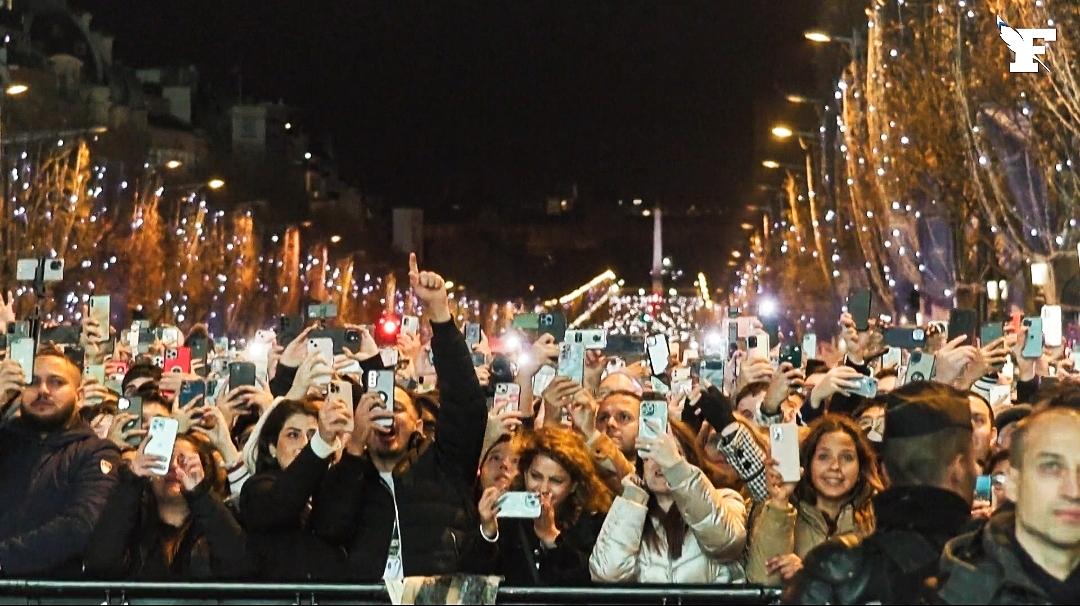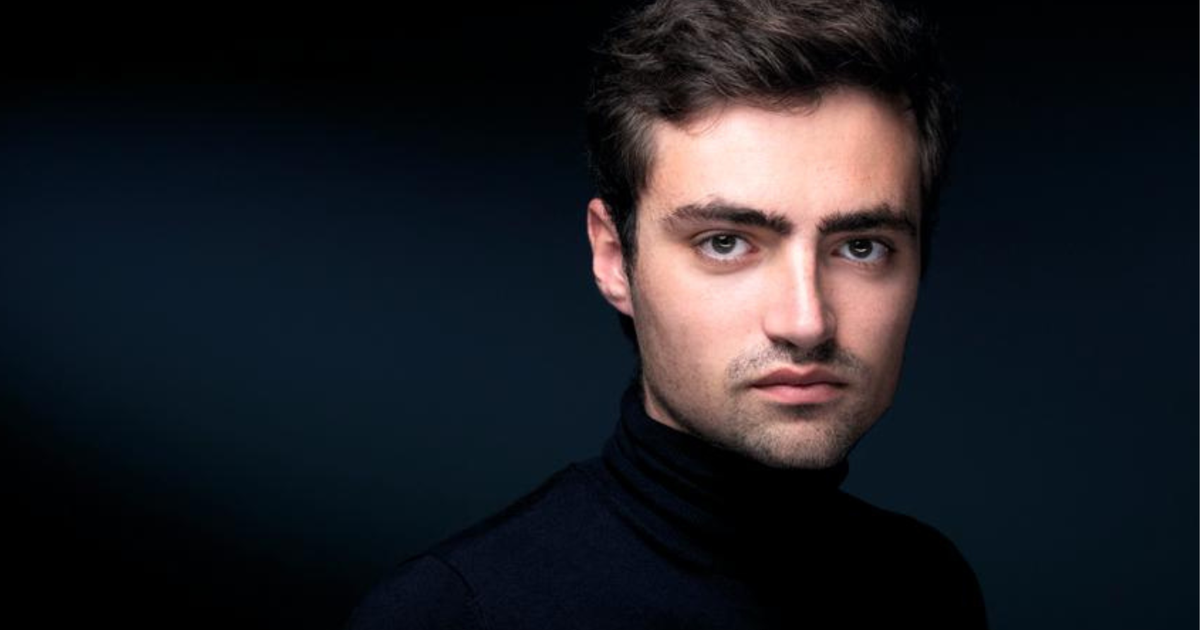Nathan Devers is a normalien, agrégé in philosophy, author of
"Heaven and Earth"
(Flammarion, 2020) and
"Space smoker"
(Grasset, 2021).
He recently published his fourth book:
“Artificial links”
(Albin Michel 2021).
First image of the year: fireworks on the Champs Élysées in front of a thick crowd.
When the rockets crackle at midnight, revelers instinctively raise, not their eyes, but their arms.
They brandish their smartphone to immortalize the scene.
They contemplate the iridescent bouquets through the pictures they take, each one taking the same photo as everyone else.
In itself, this vision conceals an uncertain beauty.
It is an image of images, a painting of the real in mitosis.
Fireworks appear simultaneously on the horizon and on thousands of screens;
they multiply without descending from the sky, they crackle and freeze at the same time, they become so many instant archives, memories reproduced like slides.
In this infinite mise en abyme, the logic of the witness abolishes that of the gaze: all painters of a spectacle that no one has seen.
What remains of a motionless party, of a show where screens have replaced eyes?
Nothing, exactly.
Anyway, nothing listed.
In the
Lettre à d'Alembert
, Rousseau contrasted the "exclusive spectacle" with the "public feast".
The first puts the room at a distance: because he submits it to a discipline of silent observation, he cultivates his inaction, that is to say his servitude.
Conversely, the party tears the curtain.
And Rousseau to praise its unifying virtue:
“Give the spectators a show;
make them actors themselves, let everyone see and love themselves in others, so that everyone is better united.”
When the distinction is blurred between actors and voyeurs, when the spectacle therefore becomes reciprocal, then the system of the gaze, by neutralizing itself, would abolish the power relations of which it was the bearer.
In these situations, we are neither alone nor in front of others, but interchangeable, "side by side" and yet distant.
Nathan Devers
It is striking to note that Rousseau's sentence seems to both describe and contradict the image of December 31, 2022 on the Champs Élysées.
"Give the spectators a show, make them actors themselves"
is the very principle of social networks: everyone will be able to see that I saw the New Year's Eve fireworks.
"Make everyone see themselves and love themselves in others"
is the robot portrait of the profession of influencer: when I like the photos of Nabilla or Léna Situation, I approve of my ideal reflection, I love through others.
"So that everyone is united"
, this is where the shoe pinches: can we really say that when the revelers of December 31 all take over their screens at the same time,
Such is the paradox: if the images of New Year's Eve on the Champs Élysées are particularly significant, it is because they express, in this celebration overtaken by the injunction to the spectacle, the becoming-solitary of an overheated sociality.
They show what Sartre called, in the
Critique of Dialectical Reason
, seriality: the grouping of individuals who, forming a human mass, constitute, not a real group, still less a community, but simply a
"plurality of separations»
.
The series happens as soon as the fact of being together tends to isolate us: when we wait for the bus (example of Sartre), when we each film the scene of a concert – or the sky of a fireworks display.
In these situations, we are neither alone nor in front of others, but interchangeable, "side by side" and yet distant.
Because the question arises: were social networks invented to bring people together or to reduce the common space to everyone's navel?
Nathan Devers
Sartre gives the example of a man who would read the newspaper in the tram:
"to isolate oneself by reading the newspaper is to use the national community and ultimately all living men (...) to separate oneself from the hundred people waiting or using the same public transport car.”
How not to see in it the description of someone who, in the middle of a party, isolates himself from his friends in favor of his smartphone – this network of networks, potentially bringing together the anonymous universality of everyone and not anyone ?
Because the question arises: were social networks invented to bring people together or to reduce the
common space at everyone's navel?
Do they contribute to creating connections between solitudes or to making these solitudes so many spheres in themselves?
Read also“Addiction of pre-teens to social networks: why do we react so little?”
And yet, I was saying earlier that an obscure beauty emanates, on the Champs Élysées, from this image of a party of body-screens.
I would add that it contains vertigo.
This crowd is also the embodiment of an era where the smallest events of our furtive existences are archived live.
My generation is the first who can, without limit, photograph everything they see, from their mirror to the dishes they order.
She takes thousands of
stories
identical in the ceremonies.
Permanently, she records everything in the hypermnesia of the virtual, including the most superficial moments, those of which nothing would have remained the next second.
Could it be, in its crisis of reality, animated by a mute nostalgia – the one we feel at dawn, for fear that the day will pass too quickly?
Would she regret in advance, at its beginning, the end of this year?





/cloudfront-eu-central-1.images.arcpublishing.com/prisa/GXCNZ4EZL7W46CE4OBDBCILZVE.jpg)







/cloudfront-eu-central-1.images.arcpublishing.com/prisa/KMEYMJKESBAZBE4MRBAM4TGHIQ.jpg)

